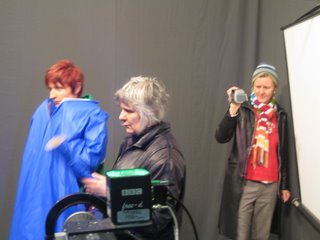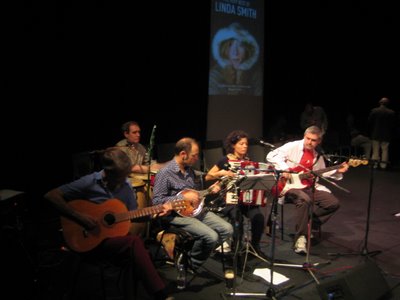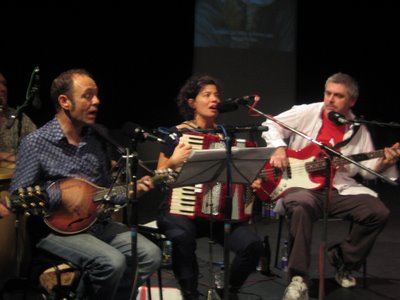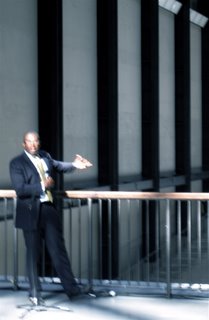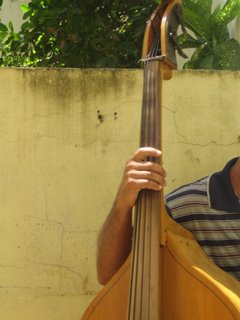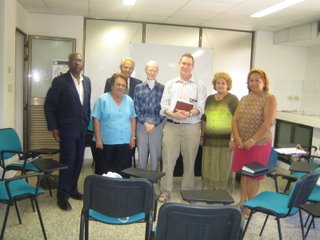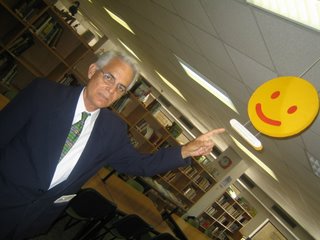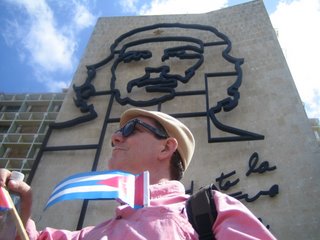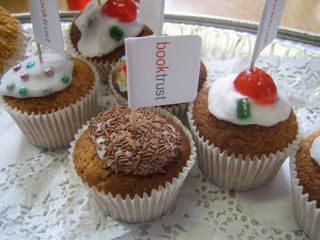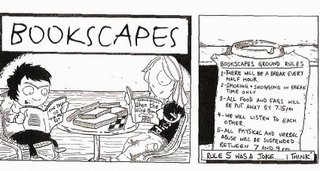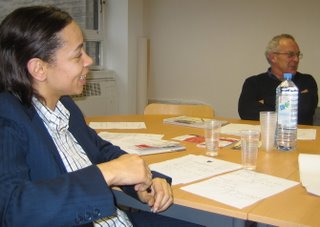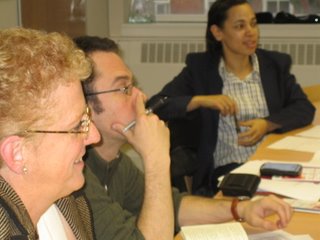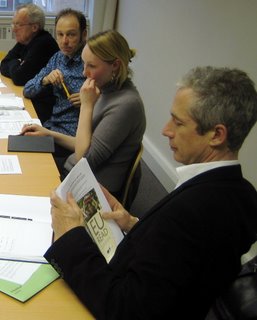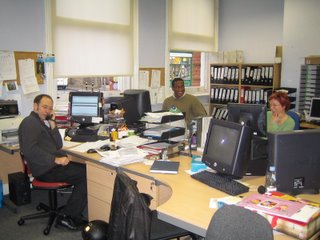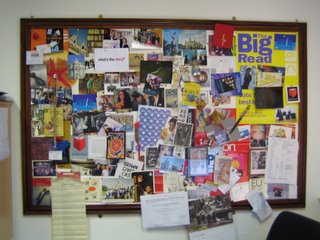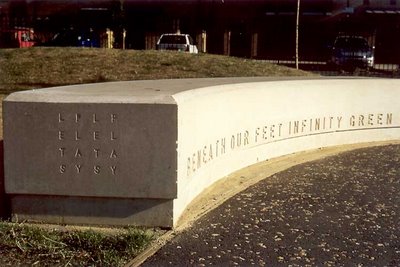
Article written for the Battle of Ideas - visit www.battleofideas.co.uk for further information about the event in October.
CAN THE BOOK SURVIVE IN AN ERA OF SOUNDBITES AND TXTING?
Defin8ly. Although we live in an increasingly snippet-driven society, there’s still an appetite for big fat stories, as the success of the blockbusters by J.K. Rowling, Dan Brown and so many others attests. Research commissioned in 2001 by Arts Council England into attitudes towards the short story suggested that readers have a bias against small books and believe Real Literature should take a while to consume.
Whereas we might have expected the screen to have replaced the page by this point in the 21st century, in fact the new media have done wonders for reinvigorating the old. The first dot com success was Amazon books, followed by eBay and ABE creating an extraordinary global, browsable book stall of second hand volumes where nothing goes out of circulation. Google’s modest aim of making all information available to everybody everywhere (well, apart from China) may scare the hell out of copyright lawyers, but sounds good for free reading.
Meanwhile the BBC not long ago spent a good chunk of licence fee money on the Big Read, which in turn prompted Channel 4’s Richard & Judy’s book club, both promoting books on telly with impressive effect. Why? This wasn’t an act of mercy towards a dying form; literary dramatisations may be costly but a few people in a studio chatting about paperbacks makes for cheap TV and happy culture ministers.
Everybody wants to be seen to love books; the Orange telecom company has been an exemplary sponsor of its book prize, and texts its customers to tell them about it. The Man Group are equally generous to the Booker, and the book trade takes for granted that the Arts Council, charitable trusts and other businesses will fork out for campaigns and prizes which directly benefit their book sales.
The Government supports schemes like Bookstart because it’s clear that literacy is still an essential life skill. A troubling survey in 2005 found that one third of the population have no interest in books. The good news is that it’s not only professional book promoters who give a damn; it is widely acknowledged that those lacking literacy skills and reading stamina are seriously disadvantaged in a society where the screen may be replacing the page, but the (spellchecked) written word still rules ok.
Actually it’s sales of the conventional visual media that may be more vulnerable as the young generation scratch, cut and paste together their own entertainment from a digital scrapbook of sounds and images. Only recently has the moving image become as fluid and interactive as words have always been. The digital age makes everything participatory - if faintly repetitive now that so much human endeavour is reduced to clickings on mouses. But when the Arts Council gazed into its crystal ball to talk about the ‘personalisation’ of arts experiences as being one of the challenges to the arts organisation of the 21st century, they failed to notice that literature has always been personal. Why do computer users 'bookmark' their favourites? The analogy of a shelf of well thumbed tomes is the best way to describe our personal list of regularly used sites. Poetry lovers have always tended to both read and write poems, participating in the creative process in a very 21st century way, the continuum between photocopied booklets and mainstream publication being as seamless as the blogosphere.
The underlying fear of dumbing down is that changing patterns of production and consumption encourage a less challenging and rigorous literature. But let’s not forget that there have always been dumb books; others considered dumb at the time of publication have been re-appraised at a later date, and vice versa. The web is good for the most popular and the most esoteric. Online it takes the same amount of time to buy an obscure out of print treatise as it does to get Jordan’s autobiography. It’s the middle ground that’s at risk, the books we don’t think to search for. This problem of how readers and other cultural consumers can find their way through the mass of what’s available is an issue for all forms of art and information.
The book will survive. It might change shape though. At Booktrust we don’t promote sheets of paper with print on sandwiched between card. We are concerned about access to literature, to genuinely creative reading and writing. If Apple can produce a gizmo which provides a better way to imbibe fiction, then Booktrust is happy to encourage the discovery and enjoyment of that too.
We are interested in the experience of creating a world in your head inspired by words.
Having said that, we also promote picture books, audio books, graphic novels, and downloadable e-books. It does get hard to keep fiction in its box, and of course good fiction will always be breaking through boundaries. Academics and writers are already exploring new ways of creating narratives on screen, exploring the web’s interactivity and multi-media nature.
Most hotlinked metatexts are pretty naff so far, but soon enough a masterpiece will be created in a form we can't yet imagine quite, and then the question is whether this artwork will be embraced as literature or new media or something else again. I very much hope that the literary world expands to include these experiments. If it has words in, then it’s part of a tradition that goes back to Caxton.
Why does that matter? Because the word conjures up images and words in your head. That conjuring is done by the author magician with the reader as glamorous assistant - both are fully involved in the creation. The best films and paintings and installations are evocative, but their appearance is all. A book doesn't work until it’s translated into the thoughts of the reader as the words slide through us to trigger meanings. And that process is uniquely stimulating. Books connect with our psyche at a deeper level than other art forms.
Books aren’t yet under threat, but the time spent reading them is. Over 40% of non readers blame this on not having the time. In 2006 few families sit in their lounges before the watershed turning the pages together. Now the times relegated to reading are restricted to late nights, journeys and holidays. iPods have invaded the journey time, but then it is possible to read and listen to music. People seem to spend a massive amount of time looking at their phones, so why not put books on those? A company called iCue has launched a system that flashes up whole novels one word at a time on mobile phones; a dizzying thought, but if it works then let’s go for it.
We need to get written stories on those 'platforms' or else we will risk further erosions into booktime; writers and literature development workers need to keep up the undumbdowning, to crawl all over the new media finding creative ways to exploit its creative potential. And that’s just what has already been happening: webtexts and SMS haikus, txtable summaries of classics and interactive metathrillers.
Paperbacks will survive as well, I have no doubt. They just need rebranding as recyclable, wire-less, portable virtual reality modules, no batteries required.
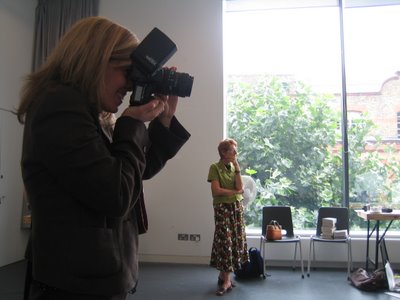
Alex Strick's brilliant work on disability and children's books has culminated in a fascinating report, downloadable from our website www.bookmark.org.uk, which was launched at the Unicorn Theatre by Quentin Blake on 13th July. Books help us all to do what we cannot - to inhabit other bodies, to change our age and gender, to feel what it's like to be somebody else, but it¹s also vital that we can find our actual experiences reflected in fiction. Quentin admitted that while it's now common practice for illustrators to check that their work reflects the multicultural nature of contemporary society, people with disabilities tend only to appear in 'issue' books. I'm sure Alex's report will lead to real change. Meanwhile it was a joy to watch Quentin in the act of creation before our very eyes.
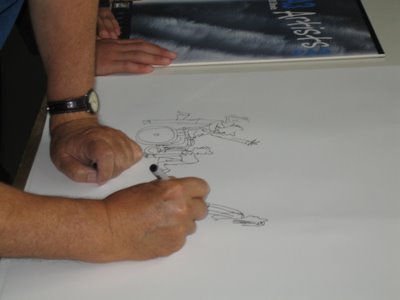
Everybody Writes is a new project in development: a campaign in schools to promote the importance of writing as a life skill. Working closely with the National Literacy Trust and an advisory group including NAWE, The Poetry Society and others, we want to highlight projects, and develop new ones of our own, which show how vital it still is that we are able to expess ourselves in words, whether we aim to make novels or job applications, shopping lists, text messages, love letters... or blogs for that matter. I love this phase of a project, when so many conversations lead to new ideas and potential connections.
*********
- Chris Meade
